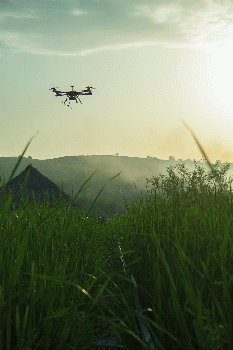An "honest mistake" is buying your partner the wrong perfume or copying someone into an email chain by accident. It is not firing a drone missile at a car, killing 10 civilians - and doing so when a small child was clearly visible moments earlier.
And yet, a supposedly "independent" Pentagon inquiry this month claimed just such a good-faith mistake after US commanders authorised a drone strike in late August that killed an Afghan family, including seven children. A US air force general concluded that there was no negligence or misconduct, and that no disciplinary action should be taken.
At the weekend, the Pentagon exonerated itself again. It called a 2019 air strike on Baghuz in Syria that killed dozens of women and children "justified". It did so even after an investigation by the New York Times showed that the group of civilians who were bombed had already been identified as fleeing fighting between US-backed militias and the Islamic State group.
A US military lawyer, Dean Korsak, flagged the incident at the time as a potential war crime but the Pentagon never carried out an investigation. It came to public attention only because Korsak sent details to a Senate oversight committee.
In announcing the conclusions of its Afghanistan inquiry, the Pentagon made clear what its true priorities are in the wake of its hurried, Saigon-style exit from Afghanistan following two decades of failed occupation. It cares about image management, not accountability.
Contrast its refusal to take action against the drone operators and commanders who fired on a civilian vehicle with the Pentagon's immediate crackdown on one of its soldiers who criticised the handling of the withdrawal. Veteran marine Stuart Scheller was court-martialled last month after he used social media to publicly berate his bosses.
Which of the two - Scheller's comment or the impunity of those who killed an innocent family - is likely to do more to discredit the role of the US military, in Afghanistan or in other theatres around the globe in which it operates?
Colonial narrativeThe Pentagon is far from alone in expecting to be exempted from scrutiny for its war crimes.
The "honest mistake" is a continuing colonial narrative western nations tell themselves, and the rest of us, when they kill civilians. When western troops invade and occupy other people's lands - and maybe help themselves to some of the resources they find along the way - it is done in the name of bringing security or spreading democracy. We are always the Good Guys, they are the Evil Ones. We make mistakes, they commit crimes.
This self-righteousness is the source of western indignation at any suggestion that the International Criminal Court at The Hague should investigate, let alone prosecute, US, European and Israeli commanders or politicians for carrying out or overseeing war crimes.
It is only African leaders or enemies of Nato who need to be dragged before tribunals and made to pay a price. But nothing in the latest Pentagon inquiry confirms the narrative of an "honest mistake", despite indulgent coverage in western media referring to the drone strike as "botched".
Even the establishment of the inquiry was not honest. How is it "independent" for a Pentagon general to investigate an incident involving US troops?
(Note: You can view every article as one long page if you sign up as an Advocate Member, or higher).






